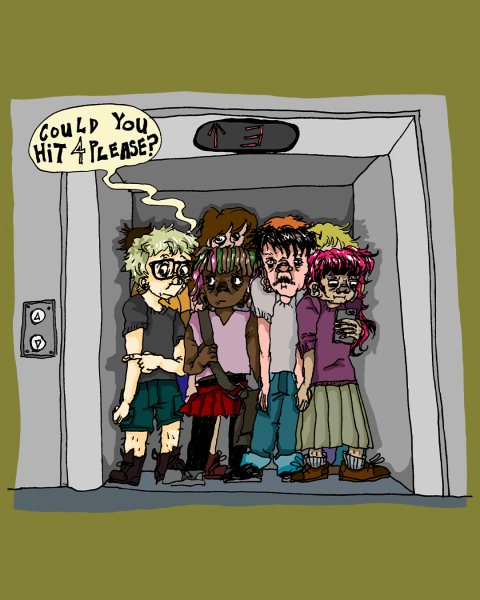OPINION: The battle for transgender people’s rights is not over
December 5, 2019
In the last 10 years, there has been undeniably huge progress for gay and lesbian citizens of the United States. In 2017, Pew Research Center found that 70% of U.S. citizens, an all-time high, think homosexuality should be accepted by society, compared to 50% in 2006.
The massive Obergefell v. Hodges Supreme Court decision in 2015 made gay marriage legal in all 50 states. Now in 2019, Pete Buttigieg, an openly gay man, is running for president. To many looking from the outside, it seems that the fight for queer rights is winding down. Despite the leaps and bounds made by others in the LGBTQ community, transgender rights have not progressed. The fight is still going.
On July 26, 2017, President Donald Trump made a clear statement that no transgender individuals will be allowed in active military service. While several lawsuits attempted to block this ban from going into effect, the Supreme Court lifted all injunctions to allow the ban to proceed while in litigation. The ban officially went into effect on April 12, 2019, blocking many brave people from serving in the armed forces because of who they are.
On May 24, the Department of Health and Human Services proposed a rule that would modify Section 1557 of the Affordable Care Act, which protects individuals from discrimination in health care services and insurance, including sex discrimination of transgender individuals. However, the proposal rolled back the regulation that included transgender individuals. This allows for health institutions to treat transgender people differently. Many transgender people already have a tense relationship with their doctors; one fifth of all transgender people reporting unequal treatment in healthcare.
During that same week, the Department of Housing and Urban Development proposed a rule that would allow federally funded homeless shelters to consider sex when accommodating someone, which could discourage transgender people from seeking shelter. The rule states that shelters may use the basis of “privacy, safety, practical concerns, religious beliefs” in their decision.
The statistics speak volumes. In 2018, at least 22 transgender people were killed because of their identity, and that’s likely an undercount of the actual amount. Data collection is often incomplete and inaccurate when it comes to crimes against transgender people, many go unreported and victims are often misgendered in reports.
Up to 47% of transgender people have considered suicide in their lifetime. One in five have been discriminated against when finding a home. One in 10 have been evicted from their home because of their identity. The unemployment rate among transgender and nonbinary people is 16%. In 2018, the number of transgender individuals who are homeless increased by 22%.
Civil rights is a constantly evolving, transgender rights and acceptance is the next big step for the U.S. A statement given by App State’s Henderson Springs LGBT Center on Nov. 18 highlights why this is so important: “Trans rights are important because they were leading pioneers in gaining rights for the whole LGBT+ community, but are one of the most oppressed groups of the LGBT+ community today.”












